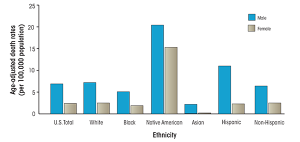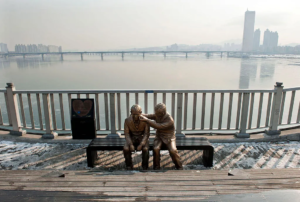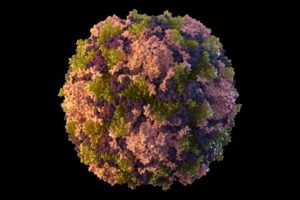May 5 was the annual day to honor Hanna Harris and the movement for Missing and Murdered Indigenous Women (MMIW). Harris (Northern Cheyenne) was a 21-year-old new mother who was murdered in July of 2013. What sounds like a plot to a psychological thriller is a daily reality for the families of over 5800 missing and murdered Indigenous women in North America.
This is why on Saturday, May 15, the Seattle community is being called to gather at Be’er Sheva Park in the Rainier Beach neighborhood to march in solidarity with all victims of gender-based violence and their families. Relatives of victims will be flying into town from across the hemisphere for this special event led and coordinated by Native women.

According to the national Institute of Justice more than 83% of Native Americans have experienced some form of violence in their lifetime. Many Indigenous activists have traced these patterns of violence back to colonial oppression, and modern instances of sexual violence against women are seen at “man camps” near reservations and pipelines. Unfortunately by some counts, Washington State has the highest occurrences of MMIW, which is one reason why local activist Roxanne White (Nez Perce, Yakama, Nooksack, Gros Ventre) has dedicated her life to supporting the victims’ families.
Like many acronyms #MMIW is evolving with the times. What started as “Missing and Murdered Indigenous Women” (MMIW) is now being written as MMIWG (Missing and Murdered Indigenous Women and Girls), MMIP (Missing/Murdered Indigenous People) or #MMIWG2S (missing and murdered womxn, girls, and two-spirit). No matter the age or gender, one thing is clear: there is a pandemic of violence against Indigenous women and femmes.





